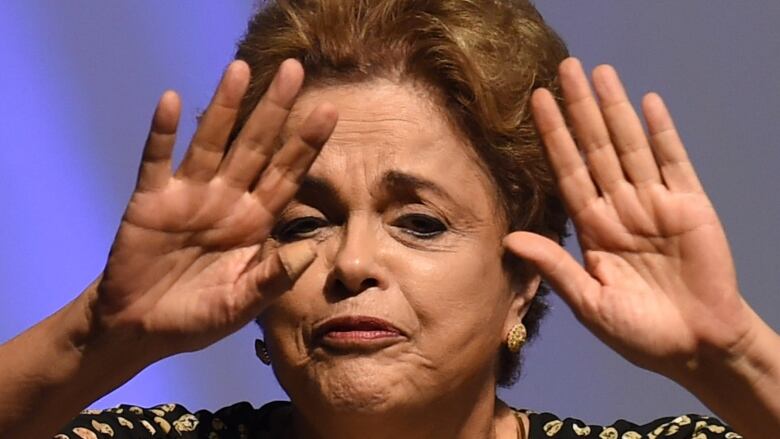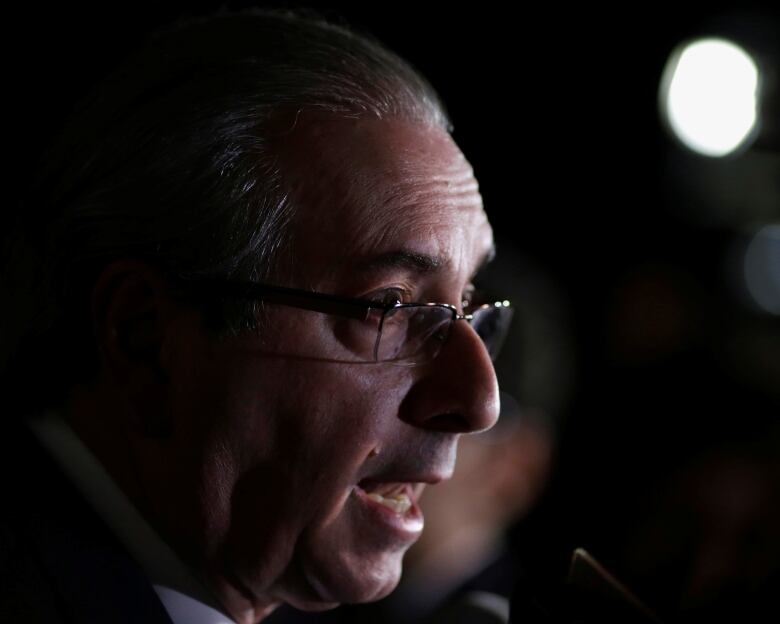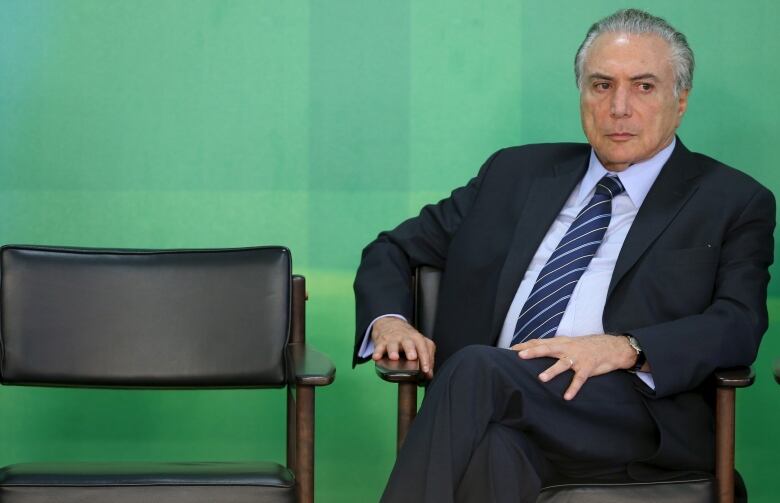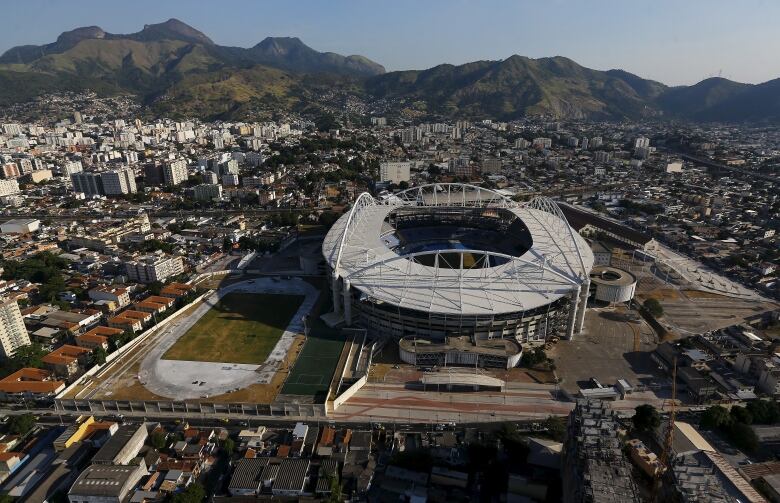Rousseff impeachment: How Brazil lost its way to economic stability
South American giant faces brutal recession and political turmoil ahead of Olympics

In Brazilian politics, clean slates don't come so easy.
Amid a deep financial gloom, the largest country in South America early today voted in the Senate after a lengthy session to launch an impeachment trial against President Dilma Rousseff. Critics are banking on the move to set in motion a new period of fiscal enlightenment.
But Rousseff's possible successors have their own shady political baggage, calling into question whether new leadership is enough to lift Brazil out of one of its worst recessions in decades.
- Dilma Rousseff defiant ahead of crucial impeachment vote in Brazil
- Brazilian PresidentDilmaRousseffcalls impeachment attempt a 'coup'
If the country is looking to install a truly spotless placeholder president, the options don't look promising, says Mariana Prado, a Brazilian law professor who researches anti-corruption at the University of Toronto.
"We're not in a good place," Prado said, noting the interim president who would take over for 180 days, current vice-president Michel Temer, could himself be impeached on corruption charges.
Were Temer to be forced out of office as well, Brazil's constitution lists the Speaker of the Lower House, followed by the leader of the Upper House, as being next in line.
The speaker, Eduardo Cunha, was suspended last week and stands accused of taking $5 million in bribes. His replacement, Waldir Maranhao, is also under investigation for money laundering.

"The joke I make is that my mom will be president because it just starts going down the line of succession," Prado said, adding there are "two discussions going on right now about the possibility of impeaching Temer."
The first involves questions of whether Temer could be seen as complicit in what Prado described as the "window dressing" of fiscal accounts that landed the left-leaning Rousseff in trouble in the first place. The scandal is based on allegations she used money from state-controlled banks to hide her government's budget deficits, a practice Rousseff claims was widespread among her predecessors.
"There are decrees that Temer signed that are the same as the ones that Dilma signed," Prado said. "If this is grounds to impeach her, there will be grounds to impeach him as well, in theory."

Temer, a 75-year-old former Speaker of the House of Congress, also faces a possible second corruption investigation linked to the state-run Petrobras oil and gas company, a large scandal that has ensnared several politicians.
What could result is a prolonged moment of political instability and a leadership vacuum just months before Brazil hosts the first ever Olympic Games in South America and during a moment fraught with anxieties about the Zika virus and national financial woes.
The scenario seems a far cry from the days not long ago when Brazil was viewed as a beacon of emerging economic growth, driven by a mid-2000s commodities boom that fed China's appetite for Brazilian iron ore, oil, soybeans and beef.
Getulio Vargas Foundation, a Brazilian higher education institute, estimated some 40 million people were pulled out of poverty into an emerging middle class between 2003 and 2011, the year Rousseff came into power.
But China's slowdown in recent years has begun to hit Brazil hard.

Brazil is forecast to see its GDP decline by 3.9 per cent this year. Once revered as one of the big four BRIC (Brazil, Russia, India, China) economies, the nation's consumer price inflation rose 10.67 per cent in 2015, reaching its highest level since 2002.
JudithTeichman, a Latin American politics specialist with the University of Toronto, attributes much of the Brazil'sfinancial trouble to mismanagement and a "resource curse" that blinded the country from diversifying its economy with innovation and infrastructure projects.
"Rousseffwanted to achieve sufficient political space to get the private sector to move forward with the programs they wanted to implement,"Teichmansaid. "AndBolsaFamiliawas a very central one."
The social-welfare program introduced byRousseff'spredecessor and further championed and expanded during her term gives regular payments to poor families in exchange for ensuring the children attend school and get regular health-clinic checkups.
- Brazil President Dilma Rousseff impeachment crisis: What happens next?
- Brazil's President Dilma Rousseff says she won't step down
"It was quite effective," Teichman said. "It reduced poverty, it did reduce inequality, and of all programs in the [Latin American] region, it was probably the best one."
While Rousseff and her predecessor, president Luiz Inacio Lula da Silva, enjoyed popularity from the nation's poor due to programs such as Bolsa Familia, neither of them counted on the collapse of the commodity boom causing so much economic turmoil, says Riordan Roett, director of Latin American Studies at Johns Hopkins University'sSchool of Advanced International Studies in Washington, D.C.
"Brazil didn't have any plan B," he said. "The industrial base deteriorated so badly because commodities and raw materials just took over the economy. Investing in roads, investing in innovation, these things are alien to Brazilians who have lived for decades on handouts from tariffs and didn't have to be very competitive."
The extent to which Brazil's economic crisis can be blamed on internal factors such as macroeconomic mismanagement and Rousseff's leadership, or external factors such as the state of international commodities prices, is debatable.

For his part, Jamal Khokhar, Canada's former ambassador to Brazil from 2008-2015, believes a "conservative shift" resulting from Rousseff's ouster will be the answer. He anticipates a more streamlined government, though popular programs such as Bolsa Familia may lose funding.
"I still believe the country has a great future, but it's all about governance," he said. "Governance and good policy and sound ethics. They moved 40 million people into the middle class. That doesn't just happen by itself."
Marcos Troyjo, director of the BRICLab at Columbia University's Centre on Global Economic Governance, also took a sunny view.
"The day after the impeachment will bring about a rainbow effect for Brazil," he said.
It may not necessarily be due to new leadership at the top, however.
- Brazil President Dilma Rousseff's impeachment divides country
- Brazil's political chaos: 'It's going to get worse before it gets better'
- Rio Olympics: 5 controversies looming over the Games
"I think sentiment improves with who's becoming the finance minister,"Troyjosaid ofHenriqueMeirelles, the highly regarded former head of the country's central bank.
"I think the worst is going to be left behind."
In the event thatTemerascends to the presidency, he would take over for up to six months, pending completion of the impeachment proceedings.
Rousseff'ssuspension ends a 13-year period in which her Workers' Party was in power, and makes her the second Brazilian president in 25 years to be impeached following corruption allegations. President FernandoCollordeMelloresigned in 1992.
Clarifications
- A previous version of this article described Rousseff's impeachment trial as being based on corruption charges. In fact, her impeachment is based on accusations of illegally manipulating government accounts.May 12, 2016 4:07 PM ET












_(720p).jpg)


 OFFICIAL HD MUSIC VIDEO.jpg)
.jpg)



























































































